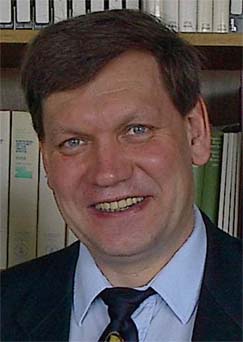Clues to Longevity
Here is a new media coverage of our longevity studies presented recently at Dalhousie University in Halifax, Canada:

Longevity researcher offers clues to living to century mark
Why many people live to a ripe old age and perhaps celebrate their 100th birthday, and why most of us don’t, has long been one of the mysteries of life. But some revealing U.S. statistics have been able to shed some light on the determinants of extreme longevity, a visiting researcher told a Halifax audience Thursday. Leonid Gavrilov said his study of genealogical records shows such factors as birth order, the age of a person’s mother and where in the United States a centenarian was raised probably play roles in determining lifespan. First-born children tend to have improved chances of being on this earth for 10 decades, he said. Mr. Gavrilov said "what’s really important" in determining who reaches age 100 is to be born to a woman under age 25. He also said people from less densely populated farming communities have a better chance of a long life than their city cousins. "Those who are born on the farm are more insulated from infections" than urban dwellers living in close quarters in densely populated centres, Mr. Gavrilov said. He said first-born children can have an advantage in terms of health status. Family genetics and body shape — overweight people aren’t likely to make it to age 100 — are important predictors, too, said Mr. Gavrilov, a Russian expatriate. According to the New York Times, fewer than two in every 10,000 Americans live to see 100 candles on their birthday cake. However, demographers are expecting the number of centenarians to increase significantly. There could be as many as 800,000 in the U.S. by the middle of this century, the newspaper reported in 2005. Mr. Gavrilov and his wife, Natalia Gavrilova, are researchers at the University of Chicago who have analyzed scores of computerized records related to Americans who lived in the 19th century. Mr. Gavrilov told a small group of health-care workers and others at the Camp Hill Veterans’ Memorial Building that when it comes to old age, not everyone wants to shave off a few years if they lie about their age. He said many people, especially those who have survived into their 90s, like to add years so they can claim to be 100 years old. "It’s a well-known phenomenon," Mr. Gavrilov said of the practice.
Published by The Chronicle Herald, volume 59, Number 106, on Friday, May 4, 2007, at page B3
MICHAEL LIGHTSTONE, Staff Reporter ( mlightstone@herald.ca)
2007 The Halifax Herald Limited, HALIFAX, NOVA SCOTIA
http://thechronicleherald.ca/Metro/833177.html
To read comments on this story, and to post your own thoughts, click here.
Home:
Longevity Science Blog
and
Longevity Science: Clues to Longevity
Labels: aging, Centenarian, Centenarians, Dalhousie University, Halifax, human longevity, invited talk, Leonid Gavrilov, longevity, longevity predictors, longevity studies, Natalia Gavrilova



0 Comments:
Post a Comment
<< Home